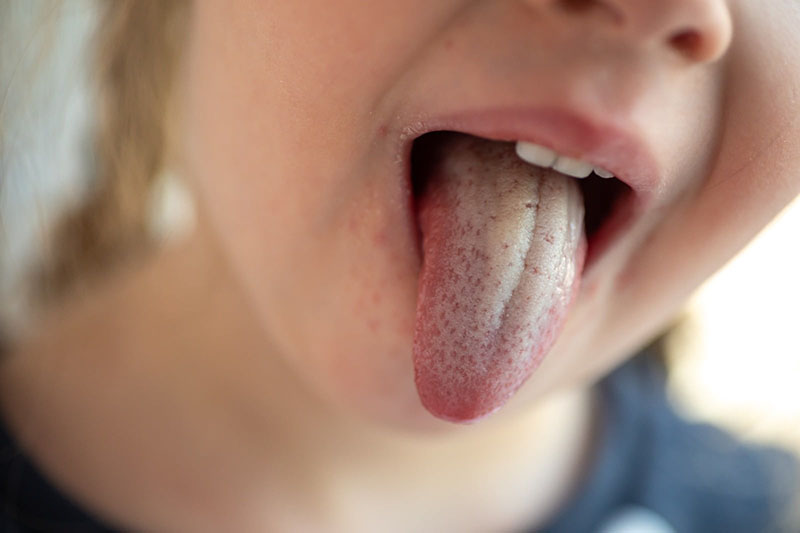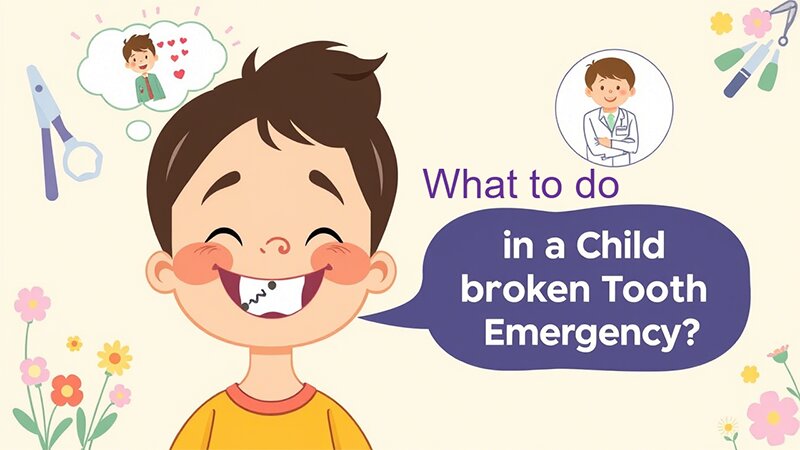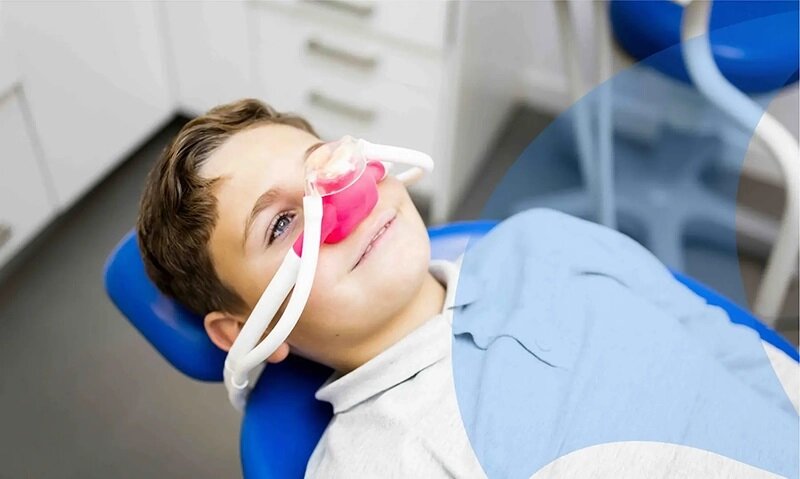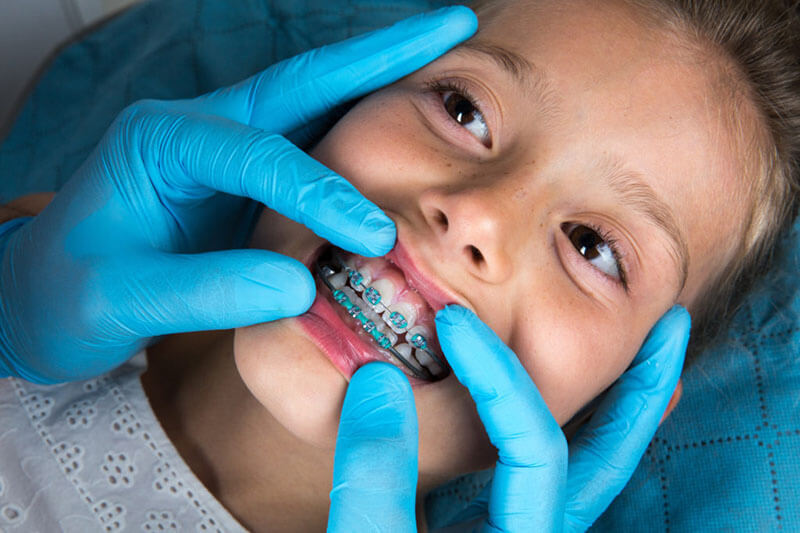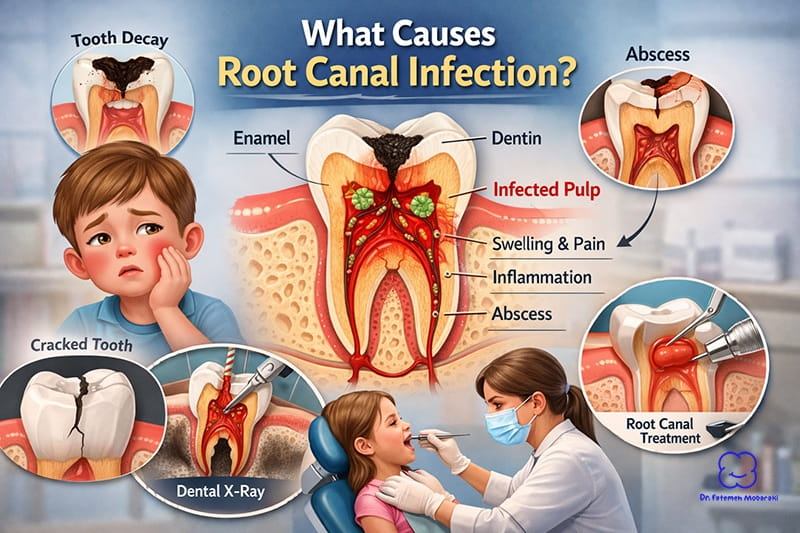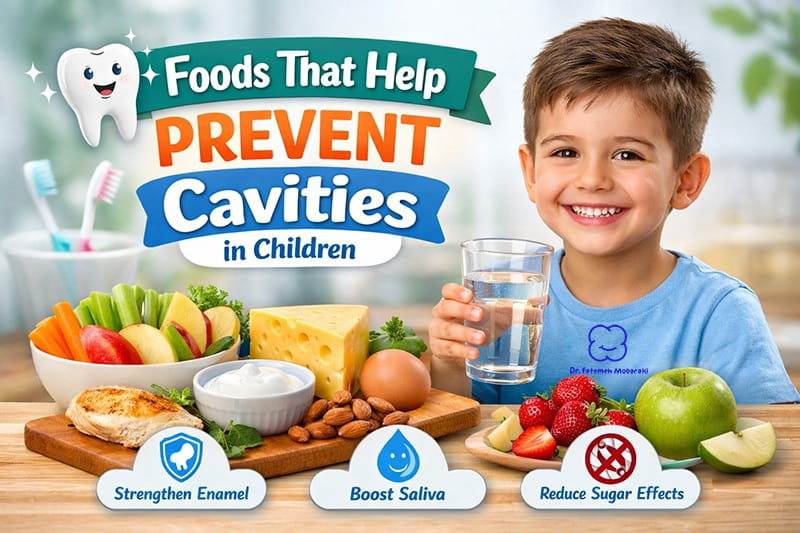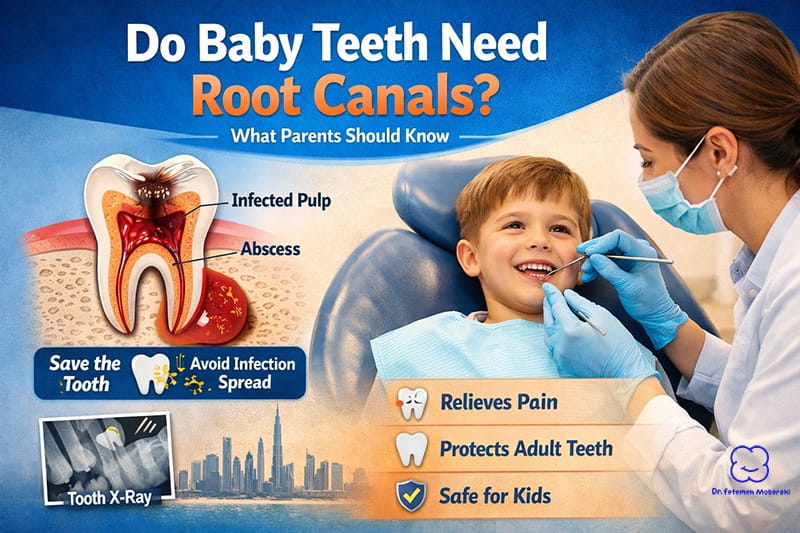Oral thrush in babies is a common yet sometimes concerning condition that many parents face. This fungal infection, caused by an overgrowth of yeast in the mouth, can make feeding difficult and cause discomfort for infants. As a parent in Dubai, ensuring your baby receives timely and effective care is essential. At Dr. Fatemeh Mobaraki’s pediatric dental clinic, we specialize in addressing oral health issues, providing compassionate and expert care tailored to your child’s needs. Whether you’re looking for guidance or a trusted kids dentist in Mirdif, we are here to help.
What Is Oral Thrush in Babies?
Oral thrush in babies, also known as baby thrush, is a fungal infection caused by Candida albicans. This yeast is naturally present in our bodies, but when it grows uncontrollably, it can lead to white patches and irritation in a baby’s mouth. Although oral thrush is not typically dangerous, it can cause discomfort and feeding difficulties if left untreated.
What Causes Oral Thrush in Babies?
Several factors can contribute to the development of oral thrush in toddlers and infants:
1. Immature Immune System: Babies’ immune systems are not fully developed, making them more susceptible to fungal infections. The lack of a robust immune response allows Candida albicans to grow unchecked in the mouth.
2. Antibiotics: Antibiotics taken by the baby can disrupt the natural balance of bacteria and yeast in the body. While antibiotics fight harmful bacteria, they can also reduce beneficial bacteria that help keep yeast levels in check, allowing Candida to overgrow.
3. Pacifiers and Feeding Bottles: Improperly cleaned pacifiers, nipples, or bottles can become breeding grounds for yeast. When these items are reused without proper sterilization, they can introduce or maintain Candida in the baby’s mouth.
4. Maternal Yeast Infections: A baby can contract thrush during birth if the mother has a vaginal yeast infection. This is a common mode of transmission and can occur even if the infection in the mother is mild or asymptomatic.
5. Breastfeeding from an Infected Mother: If a breastfeeding mother has a yeast infection on her nipples or breasts, the infection can pass to the baby’s mouth during feeding. This can lead to a cycle of reinfection if both the mother and baby are not treated simultaneously.
6. Diabetes in the Mother: If a breastfeeding mother has diabetes, especially if her blood sugar levels are not well-controlled, it can increase the sugar content in her milk. This can create a favorable environment for yeast growth in the baby’s mouth.
7. Frequent Use of Steroids: If the baby is taking corticosteroid medications (for example, inhalers for asthma), these can suppress the immune system and make the baby more prone to fungal infections like oral thrush.
8. Dry Mouth: Saliva contains natural antifungal properties that help control the growth of Candida. Babies with reduced saliva production, possibly due to dehydration or other factors, are more likely to develop oral thrush.
By understanding these causes, parents can take preventive steps to reduce the risk of oral thrush in their babies.
Differences Between Oral Thrush and Milk Tongue
It is common for parents to mistake milk tongue for oral thrush due to the similar white appearance on a baby’s tongue. However, there are key differences:
- Texture and Appearance: Milk tongue is caused by leftover milk residue and appears as a thin, white coating primarily on the tongue. It can usually be wiped away gently with a damp cloth. In contrast, oral thrush patches are thicker, may appear on other areas of the mouth (like the cheeks and roof), and cannot be easily wiped off.
- Bleeding and Irritation: Oral thrush patches may cause slight bleeding or redness if scraped, which is not typical with milk tongue.
- Associated Symptoms: Babies with oral thrush may show signs of discomfort, fussiness during feeding, or difficulty latching, while milk tongue is harmless and does not cause such symptoms.
By understanding these differences, parents can better identify oral thrush and seek professional care when necessary.
Signs and Symptoms of Oral Thrush in Infants
Recognizing the symptoms of oral thrush early is crucial for effective treatment. These symptoms occur due to the overgrowth of yeast, which irritates the delicate tissues in a baby’s mouth, making it essential for parents to identify them promptly. Common signs include:
- White or creamy patches inside the cheeks, on the tongue, or roof of the mouth that cannot be easily wiped away. These patches are different from milk residue, which can usually be removed with gentle wiping. Oral thrush patches are often thicker, may cause slight bleeding if scraped, and persist even after cleaning attempts.
- Cracked skin at the corners of the mouth. This can occur due to the irritation caused by excess drooling or the fungal infection itself. When Candida albicans spreads to the corners of the mouth, it can create small, painful cracks, especially when the baby moves their mouth frequently during feeding. These cracks may also result from secondary irritation caused by dryness or friction.
- Fussiness or irritability, especially during feeding. This behavior occurs because oral thrush causes discomfort and pain in the mouth, particularly where the fungal patches are present. The irritation from these patches can make it difficult for babies to latch properly or suck during breastfeeding or bottle-feeding. Additionally, the soreness may increase if the patches are located on the tongue, inner cheeks, or roof of the mouth, areas that are actively engaged during feeding. Over time, this discomfort can make feeding a stressful experience for both the baby and the parent, potentially impacting the baby’s nutrition and hydration if left untreated.
- Difficulty feeding or refusal to eat. Oral thrush can make feeding an uncomfortable experience for babies due to soreness and irritation caused by fungal patches in the mouth. These patches may interfere with the baby’s ability to latch onto the breast or bottle properly, leading to inadequate feeding sessions. The discomfort may cause the baby to become distressed, pull away, or refuse to feed altogether. Over time, this can affect the baby’s nutritional intake and overall well-being, making it crucial to address the condition promptly.
- A diaper rash that often accompanies thrush due to yeast spread. This happens because Candida albicans, the fungus responsible for oral thrush, can migrate from the baby’s mouth through the digestive system and end up in the diaper area. The warm and moist environment of the diaper creates ideal conditions for yeast to grow, leading to a rash that may appear red, inflamed, and sometimes accompanied by small raised spots. This rash can cause discomfort and requires prompt treatment to prevent worsening.
If you notice these symptoms, consulting a professional promptly is essential to avoid complications.
Treatments for Oral Thrush in Babies
Effective treatment for oral thrush involves addressing the infection and preventing its recurrence. Common treatments include:
1. Antifungal Medications:
Your pediatric dentist may prescribe antifungal drops or gels, such as nystatin, to eliminate the yeast infection.
2. Maintaining Oral Hygiene:
Gently cleaning your baby’s mouth with a damp cloth or soft toothbrush can prevent fungal overgrowth.
3. Sterilizing Feeding Equipment:
Regularly sterilizing pacifiers, bottles, and nipples can help reduce the risk of reinfection.
4. Probiotic Supplements:
In some cases, probiotics may be recommended to restore the natural balance of bacteria in the baby’s mouth and gut.
At our clinic, we emphasize the importance of proper oral hygiene and regular dental check-ups to maintain your child’s oral health and prevent conditions like thrush.
Diagnosis of Oral Thrush in Babies
Diagnosing oral thrush is typically straightforward. During a dental visit, your pediatric dentist will:
- Examine your baby’s mouth for white patches or other signs of infection.
- Take a medical history to identify potential risk factors such as recent antibiotic use.
Early diagnosis allows for prompt treatment, ensuring your baby’s comfort and well-being.
Importance of Early Detection and Treatment
Early detection of oral thrush in babies can prevent feeding difficulties and discomfort. If left untreated, thrush can:
- Spread to other parts of the body, such as the diaper area.
- Lead to a more severe infection requiring longer treatment.
Kids regular dental check-ups are vital for spotting issues like thrush early. These visits also allow us to guide parents on preventive measures to maintain their baby’s oral health.
When to Seek Professional Treatment
Parents should seek professional treatment if:
- The white patches in your baby’s mouth persist or worsen despite home care.
- Your baby experiences difficulty feeding or becomes increasingly fussy.
- You notice associated symptoms, such as a diaper rash resistant to typical treatments.
At Dr. Fatemeh Mobaraki’s clinic, we provide comprehensive care for oral thrush and related conditions. Our services include emergency dental care for children, ensuring prompt and effective treatment when needed.
How We Can Help
Our pediatric dental clinic in Dubai is dedicated to supporting parents and their little ones through all stages of dental development. We offer:
- Expert diagnosis and treatment of oral conditions like thrush.
- Guidance on maintaining proper oral hygiene for your baby.
- Regular dental check-ups to monitor and maintain your child’s oral health.
With our compassionate approach and state-of-the-art facilities, we strive to make every visit comfortable and stress-free for both parents and children.
Conclusion
Oral thrush in babies is a common condition that, while not typically dangerous, requires prompt attention to ensure your baby’s comfort and well-being. By understanding the causes, symptoms, and treatments, parents in Dubai can take proactive steps to address this issue. At Dr. Fatemeh Mobaraki’s pediatric dental clinic, we are here to provide expert care and guidance, ensuring your baby’s oral health remains in excellent condition.
FAQs
1. How can I prevent oral thrush in my baby?
To prevent oral thrush, maintain proper hygiene by sterilizing feeding equipment, cleaning your baby’s mouth regularly, and washing your hands frequently.
2. Is oral thrush contagious?
Oral thrush itself is not highly contagious, but it can spread through shared items like pacifiers or breastfeeding if proper hygiene is not maintained.
3. Can oral thrush resolve on its own?
Mild cases may resolve without treatment, but it’s best to consult a pediatric dentist to prevent complications and ensure effective care.
4. Should I stop breastfeeding if my baby has oral thrush?
No, you can continue breastfeeding. However, ensure proper hygiene and consider treating both yourself and your baby to avoid reinfection.
5. What is the best treatment for oral thrush in Dubai?
The best treatment involves antifungal medication prescribed by a pediatric dentist, combined with good hygiene practices to prevent reinfection.
6. Can thrush affect my baby’s sleep?
es, oral thrush can cause discomfort that may disrupt your baby’s sleep. If feeding is painful, hunger might also interfere with restful sleep.
For more information on maintaining your baby’s overall health and hygiene, check the World Health Organization (WHO), which provides trusted guidelines on infant care.

